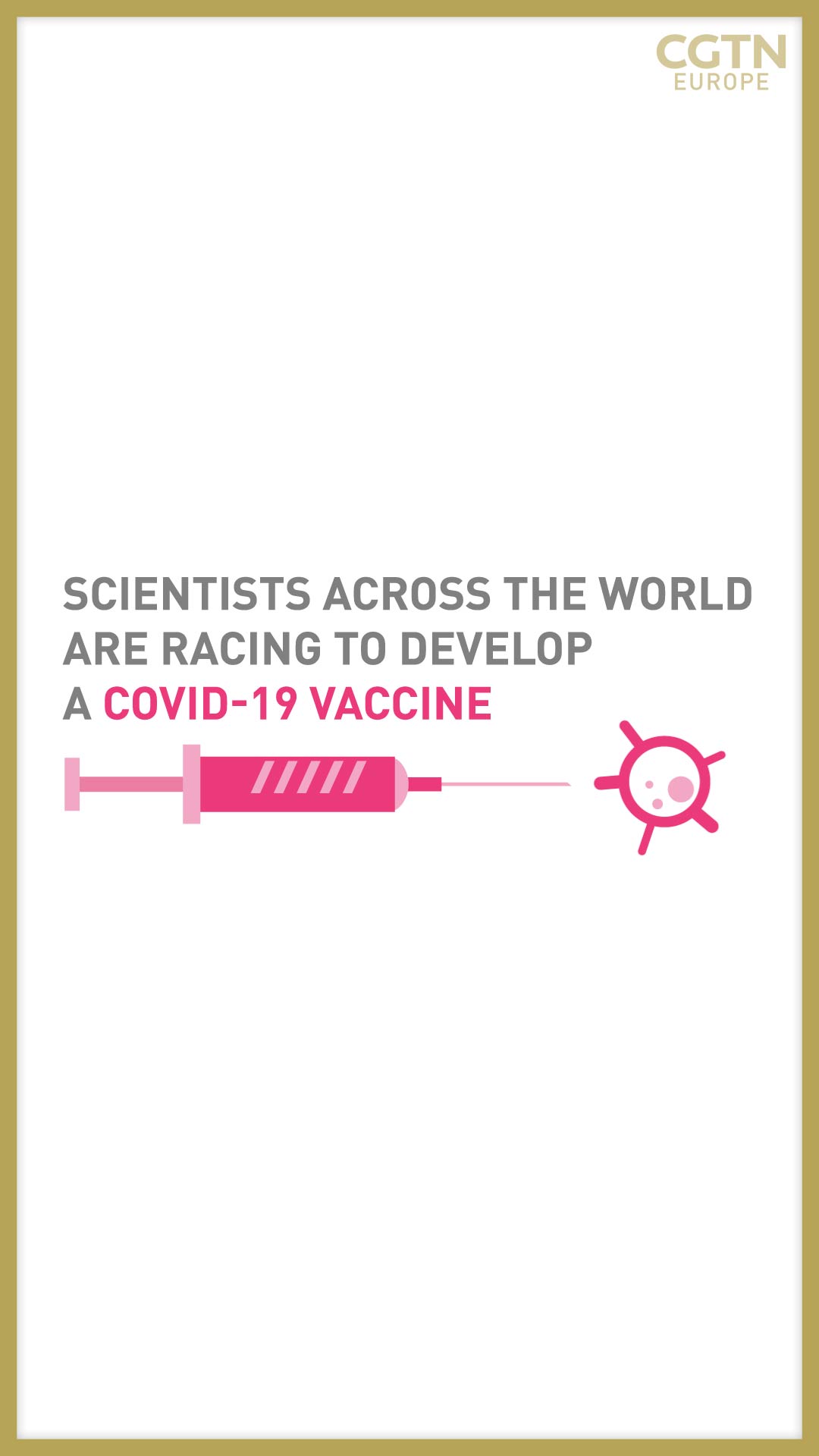On 4 June, the UK government will host a virtual global vaccine summit to raise at least $7.4 billion for GAVI, the Vaccine Alliance to help fund it from 2021 to 2025.
The summit will ask world leaders to pledge their commitment to vaccinations at a time when international collaboration has been urged to fight the current COVID-19 crisis. If the summit succeeds, the funding will be used to vaccinate 1.1 billion children, maintain immunization in developing countries to mitigate the impact of the coronavirus pandemic, and support health systems worldwide so they can deal with the crisis successfully and introduce COVID-19 vaccines as soon as available.
The pandemic has set off an unprecedented race to develop a COVID-19 vaccine at a speed unmatched in the history of vaccine research. There are currently more than 100 candidate vaccines in development worldwide, 10 of which are already in clinical evaluation.
02:06

These are the front-runners:
Oxford University/AstraZeneca
Oxford University's candidate vaccine, ChAdOx1 nCoV-19, is made from the ChAdOx1 virus, a weakened version of a common cold virus (called adenovirus) that causes infections in chimpanzees, genetically modified so that it is impossible for it to replicate in humans.
Genetic material used to make the spike glycoprotein, the protein that the coronavirus uses to penetrate people's cells and gain entry to their bodies, is added to ChAdOx1. Researchers hope to make the body recognize and develop immunity to these spike proteins, therefore preventing the SARS-CoV-2 virus from entering people's bodies.
Phase 1 trials in healthy volunteers began in April, with more than 1,000 immunizations completed. By end of May, the experimental vaccine began phase 2-3 of human trials, expanding immunizations on a larger group of people aged between 56 and 69, those over 70, and children aged between five and 12. Researchers want to find out if there's a difference in response to the vaccine in people of different ages. Phase 3 trials will involve a large group aged over 18.
The clinical trials are set to involve a total of more than 10,000 people across the UK. If effective, the vaccine will be manufactured and distributed together with pharmaceutical group AstraZeneca.
Immunization is one of the greatest success stories in the history of global health
- Tedros Adhanom Ghebreyesus, director-general of the World Health Organization, speaking on 27 April
Moderna/ National Institute of Allergy and Infectious Diseases (NIAID)
U.S. biotech company Moderna was the first to enter clinical trials for its candidate vaccine LNP-encapsulated mRNA, just eight weeks after the genetic sequence for COVID-19 was found in January. During phase 2 the experimental vaccine was tested on 45 people, all of whom produced COVID-19 antibodies.
Similarly to Oxford University's one, this candidate vaccine works on the principle of having the immune system recognize the spike proteins the coronavirus uses to enter people's bodies. It encodes the instructions for making a spike protein into a molecule – RNA – that can be injected into patients.
It entered phase 2 trials in May, testing two vaccinations of mRNA-1273 across two groups of adults, one aged 18 to 55 and one aged over 55. The patients will be observed through 12 months after vaccination.
CanSino /Beijing Institute of Biotechnology
Ad5-nCoV is a weakened common cold virus (adenovirus) genetically engineered to produce the COVID-19 spike protein.
China's CanSino was the first candidate vaccine to move to phase 2 of clinical trials in April, and also the first company to have its phase 1 study peer-reviewed. Phase 1 trials, taking place in the Chinese city of Wuhan in March and involving 108 healthy adults between 18 and 60 years old, found that candidate vaccine Ad5-nCoV was tolerable and able to provoke an immune response 28 days after vaccination. Phase 2 is set to involve 500 adults, 250 of whom will be given the middle dose of the initial vaccine tested in phase 1, and 250 the low dose.
Sinovac
CoronaVac consists of a chemically inactivated version of the SARS-CoV-2 virus – a very traditional method of creating vaccines, one that historically has proved successful.
China's Sinovac is at phase 2 of testing CoronaVac, which has already been found to protect monkeys from being infected with the coronavirus. Sinovac has received $15 million in funding from Advantech Capital and Vivo Capital to accelerate development of its vaccine and says it's building a commercial vaccine production plant to manufacture up to 100 million doses of the vaccine per year.
The company says it's 99 percent confident the vaccine will work against COVID-19, and it's now discussing phase 3 trials, which should take place in the UK as China doesn't have enough cases to find a sufficient number of volunteers for the tests.
Graphics and animation: James Sandifer
Check out The Pandemic Playbook, CGTN Europe's major investigation into the lessons learned from COVID-19